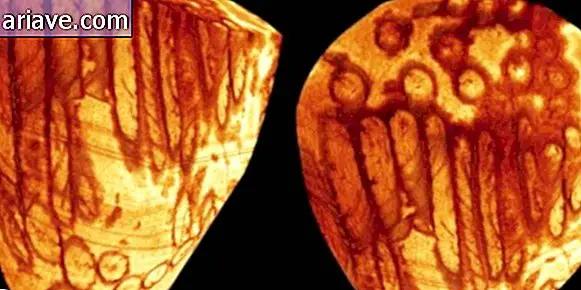Lymphatic System: What is it, what is it for and how does it work?
You may have heard about the lymphatic system, right? If you do not fully understand its usefulness in your body, know that it performs incredibly important functions - related to fighting infection and eliminating bacteria, viruses, impurities and other “unwanted” elements from our bodies.
According to Jordan Rosenfeld of Mental_Floss, this mechanism works in conjunction with the immune system and basically works by circulating lymph - a transparent fluid produced from excess fluid passing through the capillaries - through the lymph vessels that are found in the body. distributed throughout the body.

This fluid collects all impurities and foreign agents present in the tissues and deposits them in the lymph nodes, where leukocytes (immune cells) come into action and attack any agents that they understand to be harmful to the body. Here you can learn a little more about the fascinating workings of this vital mechanism:
How does the lymphatic system distribute itself?
Although the lymphatic system and the circulatory system are independent mechanisms, they work together and function more or less like subway lines running similar routes. So where there are veins and arteries, you may know that we will find lymphatic vessels.

Still thinking about the analogy we made with the subway lines, distributed along the vessels we find small lymph nodes, the so-called lymph nodes, that would be like small "stations" in this transport network - which are the ones that receive the impurities and infectious agents collected. by the lymphatic system. In fact, this mechanism is put into operation thanks to the pressure created by body movement and the action of gravity, so light massages and drainage can help.
What are lymph nodes?
They are structures about the size and shape of peas that are distributed throughout the body. It is in the lymph nodes that are the B and T lymphocytes, the main cells produced by the body focused on fighting infections, as well as subcategories of these cells.

Going back to the analogy of subway lines and stations, it is important to mention that the lymphatic system also works in conjunction with the spleen which, in this whole network we have mentioned, would function as a kind of “central station”. This organ - which lies between the stomach and the diaphragm - can produce additional lymphocytes when needed, as well as filter out toxic substances in the body. But back to the lymph nodes ...
How do lymph nodes act?
When the lymphatic system carries to the lymph nodes some agent that is identified as potentially dangerous - such as a virus, a bacterium, and even some medication we take -, B lymphocytes begin to produce antibodies that in turn signal to other cells. immunological that it's time to take action.

This entire mobilization can cause lymph concentration to increase within the lymph nodes - causing them to become swollen and painful. Generally speaking, when this happens, there is no cause for much concern.
However, if the swelling persists for several weeks, and you find that a lymph node is firmer and less "mobile" than normal, see a doctor! This is because, although these structures become painful and swollen in response to infections, when they become more persistent, hard, their consistency in touch changes and makes it harder to move.
Warning Signs
You may have wondered what persistent, motionless, more consistent lymph nodes might indicate, right? Well, dear reader, this picture can signal the presence of some cancer in the lymphatic system or even in other parts of the body. This is because, in the event of metastasis, cancer cells eventually migrate to the lymph nodes and from there can spread to other tissues.

In fact, this is another superimportant function of the lymphatic system, as doctors can determine cancer prognosis by defining how involved lymph nodes are in the disease. Typically, when doctors detect the presence of cancer cells in lymph nodes, treatment needs to be more aggressive, including the use of radiotherapy, chemotherapy, and other drugs.
The good news, however, is that, according to Mental_Floss's Jordan, there are promising therapies out there for cancer treatment. A problem related to this disease is that, because tumors are made of cells in the body itself, the immune system does not always understand that they are dangerous. One of the novelties is focused on genetically altering patients' lymphocytes so that they recognize malignant cells and decimate tumors. Cool huh?











